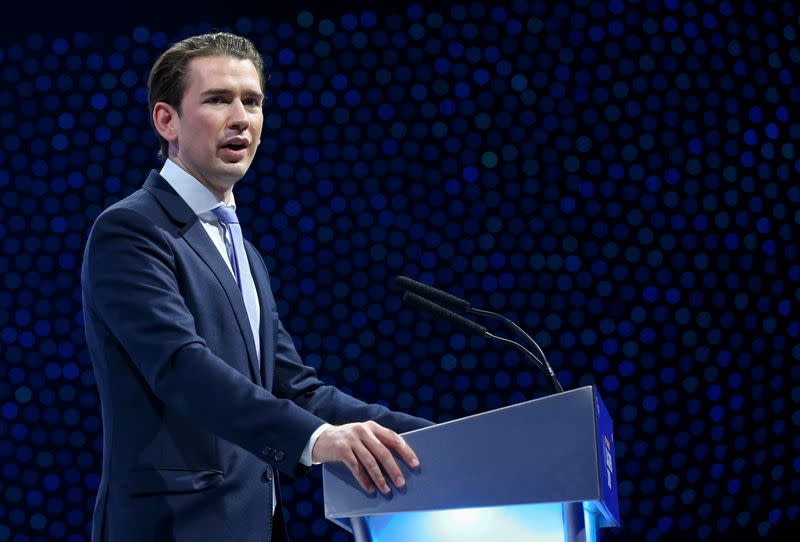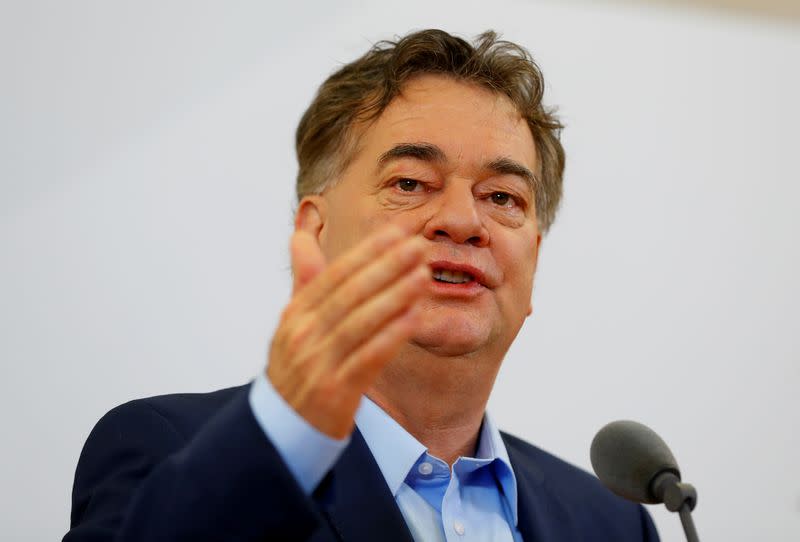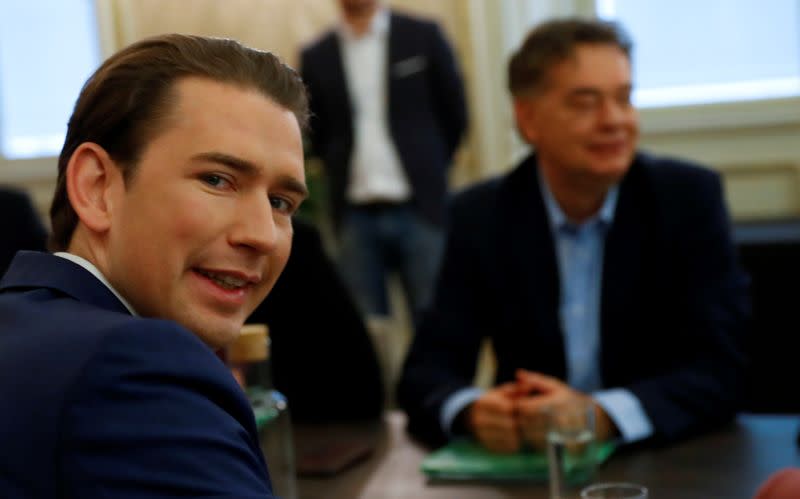Austria's Kurz, Greens chief see coalition deal by mid-January
VIENNA (Reuters) - Negotiations between Sebastian Kurz's conservatives and the Greens in Austria are in their final stages and expected to result in a coalition government by mid-January at the latest, both party chiefs said on Friday.
"It is our goal to have a government by early to mid-January," Kurz told a news conference in Vienna in reference to his talks with the Greens, who would enter national government in Austria for the first time.
The two parties' positions differ considerably on many issues ranging from environment to migration and taxes, leaving many Austrians deeply sceptical about the prospects for a deal - but both sides had little option but to find ways to compromise.
Kurz's previous governing coalition with the far-right Freedom Party (FPO) collapsed when a video surfaced showing then Vice-Chancellor and FPO leader Heinz-Christian Strache at a dinner party in Ibiza offering to fix government contracts while in discussion with a woman posing as a Russian oligarch's niece.
A coalition of the Greens and his People's Party would be a ticket back to power as chancellor for the 33-year-old Kurz and a chance to polish his credentials with the global climate movement that is having a big impact on policy-making in Europe.
Austria's new coalition-building is being followed closely in Europe and especially in Germany where Chancellor Angela Merkel's coalition with the Social Democrats is in jeopardy. Early elections could transpire, with Merkel's Christian Democrats facing similar choices to Kurz in Austria.
"First, I hope this venture does not fail and second, I do not expect it to fail either," Austrian Greens party chief Werner Kogler told reporters when asked whether the negotiations could still fall through.
The FPO scandal led to early parliamentary elections in September in which the Greens made big gains, propelled by climate change campaigners led by Swedish teenager Greta Thunberg. They secured 13.9% of the vote, their best result ever, after failing even to win a seat parliament in 2017.
One of the Greens' priorities is adjusting taxes to better reflect the environmental impact of certain goods, such as doing away with favourable treatment of diesel fuel.
Austrian media have said one area of apparent agreement is that "environmentally damaging emissions" will become more expensive but commuters unable to use public transport instead of their car will receive some kind of compensation.
(Reporting by Kirsti Knolle; Editing by Mark Heinrich)




